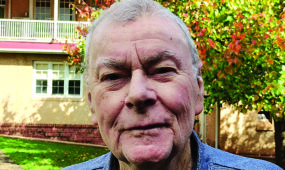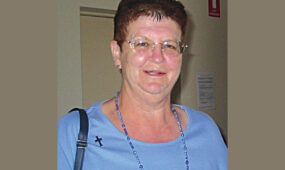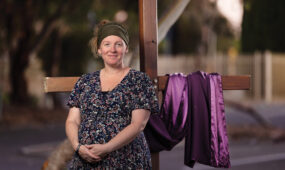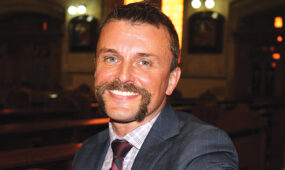A sense of belonging
People
When Sr Jenny Seal fdnsc left Adelaide last year for a three-month sabbatical in Malta, she carried with her a family heritage closely connected to the history of the small Mediterranean nation.
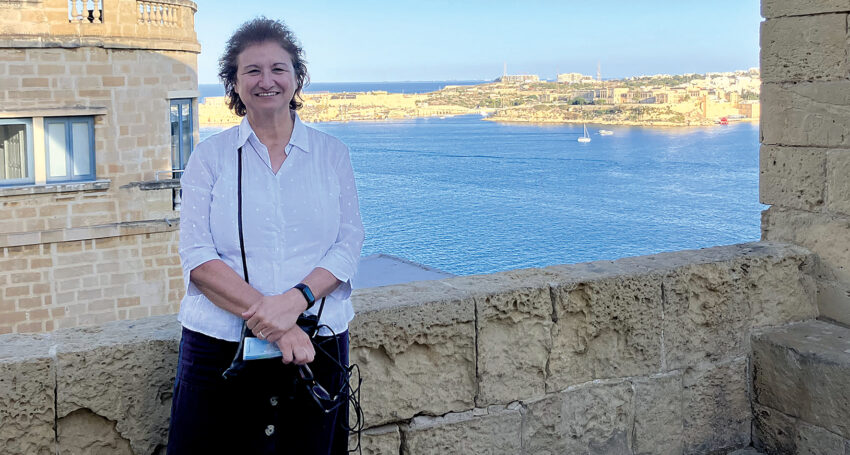
A first generation Australian of Maltese parents, along with her four brothers, Sr Jenny said when she arrived in Malta, she immediately felt a “sense of belonging” and “being home” as she recalled the places, streets and stories shared over dinner when she was growing up.
The family line of her mother, Carmen, is Maltese on both grandparents’ sides. Carmen’s grandfather was in the British Navy and was lost at sea in World War I while her father was away from the family serving with the Navy during World War II.
Advertisement
“Mum always said that the war broke out when she had just received her First Holy Communion – that was her marker, an important time which she always cherished and remained with her as a daily communicant,” Sr Jenny said.
“Her big job then was to carry the short stool for her mum with baby in arms as they often ran to the shelter over the many years.”
Sr Jenny’s father Morris was also of Maltese parents. His grandfather, William, was an Englishman from Bromley, Kent, who was stationed in Malta as a member of the British Navy, married and settled there. Morris’ father was a policeman in Malta where he would often have a drink at the local club with Lord Mountbatten.
“From both sides of family, my heritage is one of service – the Seal family crest is ‘Loyal en toute’,” she said.
“A few years after the war, my dad opened his own joinery shop at the age of 16. He made boats, coffins, church furniture as well as some furniture for Princess Elizabeth’s villa in Malta. He was an extremely creative craftsman with great enterprise, ingenuity, and resilience.
“Both my parents came to Australia with their families just one month apart of each other at age 19. Within a few weeks, mum and dad met and the rest is history.”
While studying church history and sacred art at the University of Malta, Sr Jenny had the opportunity to visit significant Christian sites such as St Agatha’s Catacombs in Rabat, hamlet and cave churches with recently discovered frescoes and other archaeological sites.
But her first visit was to the Our Lady of the Sacred Heart parish church in Sliema. While her order (Daughters of Our Lady of the Sacred Heart), which was founded in 1874, has never had a presence there, a Maltese artist created an ornate statue of Our Lady of the Sacred Heart, Madonna ‘ta Sacro Cuor in 1879, being installed in the church in 1881.
Writing to friends and colleagues at Christmas, Sr Jenny said she had been reflecting on the concept of land – “its importance to people, the sense of place and home, and of livelihood”.
“I can’t help thinking that the conflicts are over a sense of ownership and ‘what is mine,
I want’ or even ‘what is not mine, I want too’,” she wrote.
“More and more I see that we may need to change this concept of ownership, a very business-like transaction, to more of one of stewardship and the sharing of resources. I wonder if in this way, we may be able to move towards the healing of the earth and its people.
Advertisement
“From what I have learnt in this time, Malta seems to have always been a land whereby those outside the land claim ownership and domination, be it by the Phoenicians, Romans, the Normans, the French, the Arabs, the Ottomans, the British and other Kingdoms prior. They had no recourse.
“Even the Pope of the time agreed with Charles V Emperor, to give Malta to the Knights of Rhodes (initially of Jerusalem) who were searching for a home, for the charge of one falcon per year.
“However, I see that the people learnt to ‘get on’ with the invading rulers and are known for their tolerance and goodwill to all manner of people regardless of creed or culture.”
Sr Jenny remembered her mum saying that when she and her family saw the British Spitfires flying overhead in WWII, they knew they would be saved.
“They were at their end with no food, no supplies of any sort and the most bombed in the world,” Sr Jenny wrote.
“Nevertheless, the people would never give up easily. Thus, their hard-work, resilience, and capacity to fight on until the end is part and parcel of the people.”
With a ministry spanning more than 40 years in education, faith formation and children’s ministries, Sr Jenny told The Southern Cross that her sabbatical was a time of renewal offered to her by her congregation and she was grateful for this opportunity.
“I value the importance of claiming where we have been, where we are and where with God I can step into territories yet unknown,” she said.
“Thus, this coming Lent-Easter season is just one of those yearly opportunities which we all have open to us to live a sabbatical-in-daily-life…in the midst of our family and community life.”
Sr Jenny was a consultant in the Family and Parish-Based Catechesis Office (now Family Faith Formation Team) at the Catholic Education Office in Adelaide for more than 10 years.
She is the SA Vocation Network coordinator and can be contacted at jenny.seal@olshaustralia.org.au.
150 years down under
This year the international missionary order, the Daughters of Our Lady of the Sacred Heart, celebrate 150 years as an Australian province.
In response to the Pope’s request at the time for missionaries to Micronesia and Melanesia, the Sisters arrived in Australia in 1886.
The Sisters have served all over Australia and overseas in whatever way serves the needs of the times.
Today the Sisters are assisted by volunteers, associates and partners in mission who also endeavour to live a spirituality of the heart through one’s circumstances and vocational call within their workplace, community and family.


